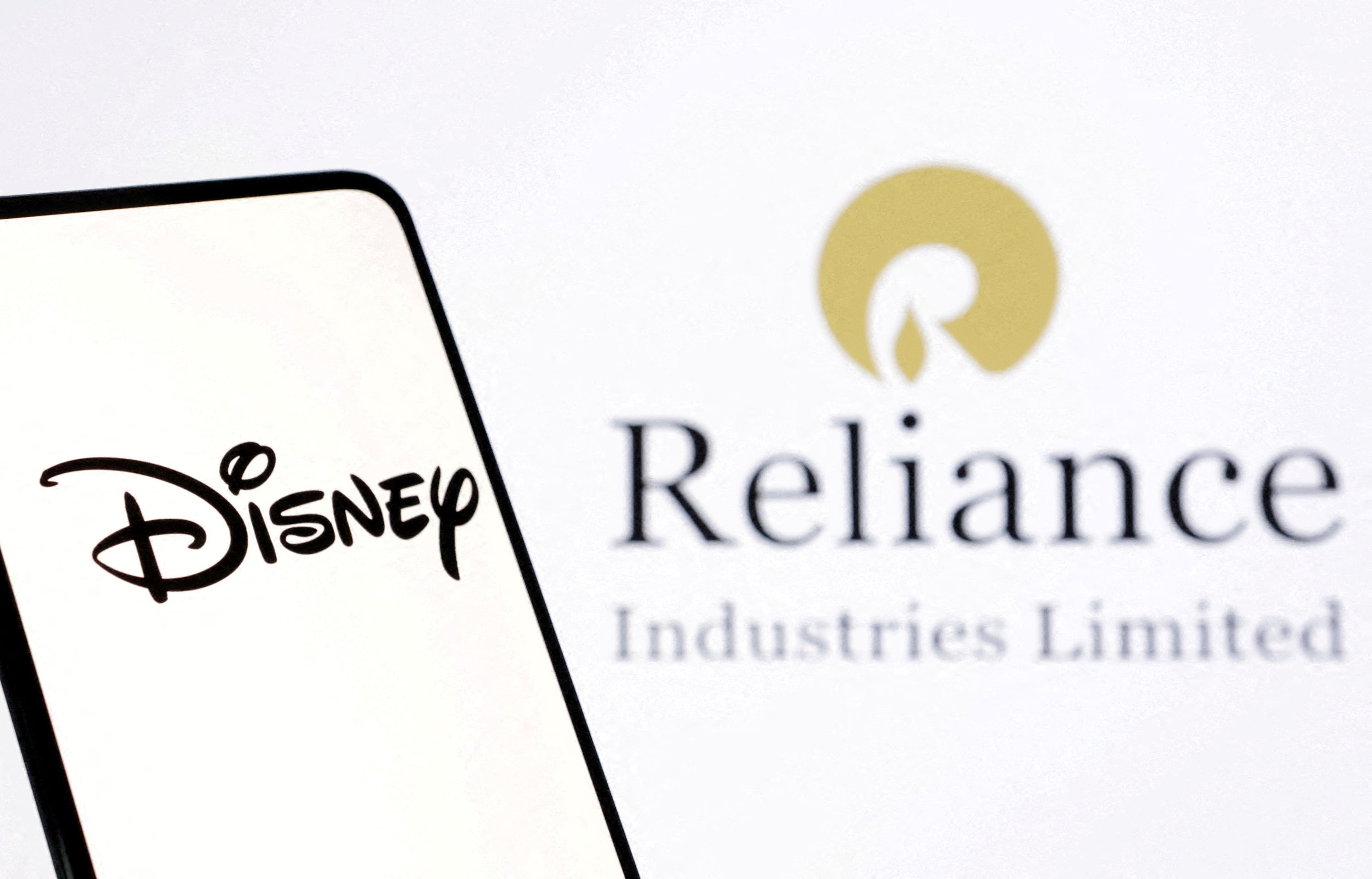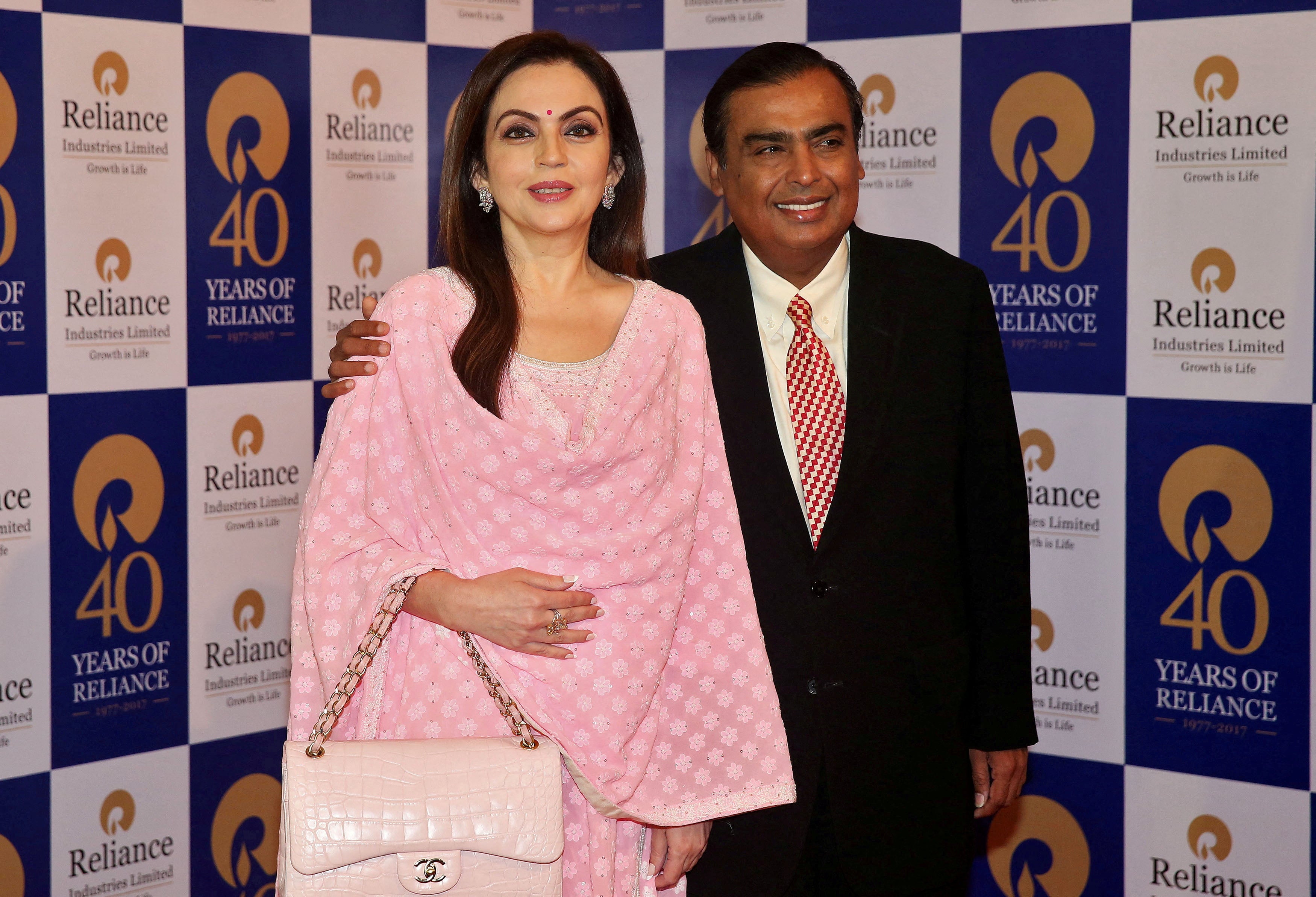Disney and Reliance agree on $8.5bn merger to create Indian media giant
Reliance will control 63 per cent of stakes in new joint venture

India’s top conglomerate Reliance Industries and Walt Disney announced striking an $8.5bn deal to merge their India TV and streaming media assets, creating an entertainment juggernaut far ahead of rivals in the world’s most populous nation.
Reliance, led by Asia’s richest man Mukesh Ambani, will invest $1.4bn in the merger controlling 63 per cent of stakes in the new entity while Disney will hold about 37 per cent with the new entity that is valued at $8.5bn, said a joint statement from the two companies.
The joint venture would headed by Nita Ambani, wife of Reliance boss, Mukesh Ambani, while former Walt Disney executive Uday Shankar is to be named as vice chair of the board.
The merger aims to be the leading streaming for entertainment and sports content in the country, as it brings together media assets, including Star India which Disney acquired in 2019 as part of its $71bn acquisition of Fox from Rupert Murdoch.
For Disney, the merger follows its long-drawn struggle to arrest a users’ exodus from its bleeding India streaming business and financial strain caused by billions of dollars in Indian cricket rights payments – in another example how foreign businesses can struggle to grow in India.
The deal also comes when Disney is facing pressure globally to streamline its businesses. Bob Iger returned to Disney in November 2022 as the chief executive, less than a year after he retired, and has since restructured the company to make the business more cost effective.

Mr Iger in November said the company would like to stay in India, but it was considering its options. Disney internally recognised that it misjudged the Indian market, company sources have previously told Reuters.
Reliance and Disney each have a streaming service and 120 television channels between them and the deal is expected to strengthen Reliance’s hold over India’s $28bn media and entertainment market. The new platform will also be granted exclusive rights to distribute Disney films and productions in India, with a license to more than 30,000 Disney content assets, providing a full suite of entertainment options for the Indian consumer, said the press release.
Under the new merger, the conglomerates would be targeting to reach over 750 million viewers across the country, while aiming to cater “Indian diaspora across the world”, thereby setting the stage for fierce rivalry with the likes of Japan’s Sony, Netflix and Amazon Prime Video.
Hailing the merger as “a new era in the Indian entertainment industry,” Mr Ambani said they are looking forward “to deliver unparalleled content at affordable prices to audiences across the nation”.
“India is the world’s most populous market,” said Mr Iger, the chief executive of The Walt Disney, “and we are excited for the opportunities that this joint venture will provide to create long-term value for the company.”
Disney and Reliance already have a market share of over 40 per cent in advertising and about same share in streaming giving them an edge over competitors, Karan Taurani, a research analyst at Elara Capital told the New York Times. “This will lead to better profitability because the content costs could come down.”
“This merger will give Reliance great bargaining power when it comes to negotiating advertisement contracts ... For Disney, coming together with a bigger player, in terms of (financial) pockets, will give it a cash cushion,” said Jinesh Joshi, an analyst at India’s Prabhudas Lilladher.
Additional reporting by agencies
Join our commenting forum
Join thought-provoking conversations, follow other Independent readers and see their replies
Comments
Bookmark popover
Removed from bookmarks